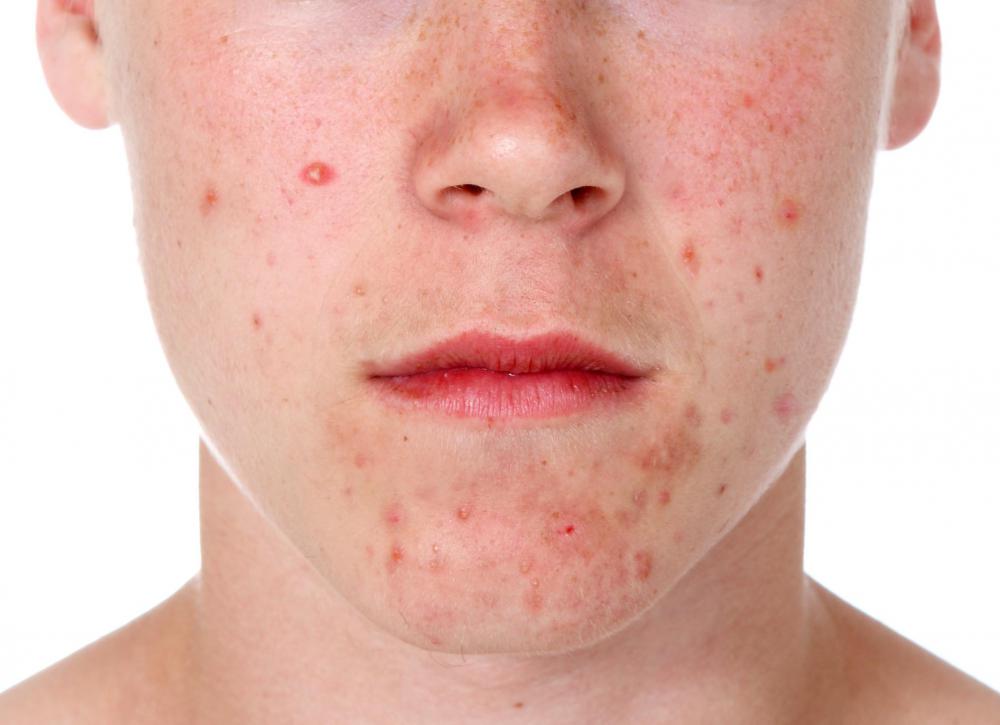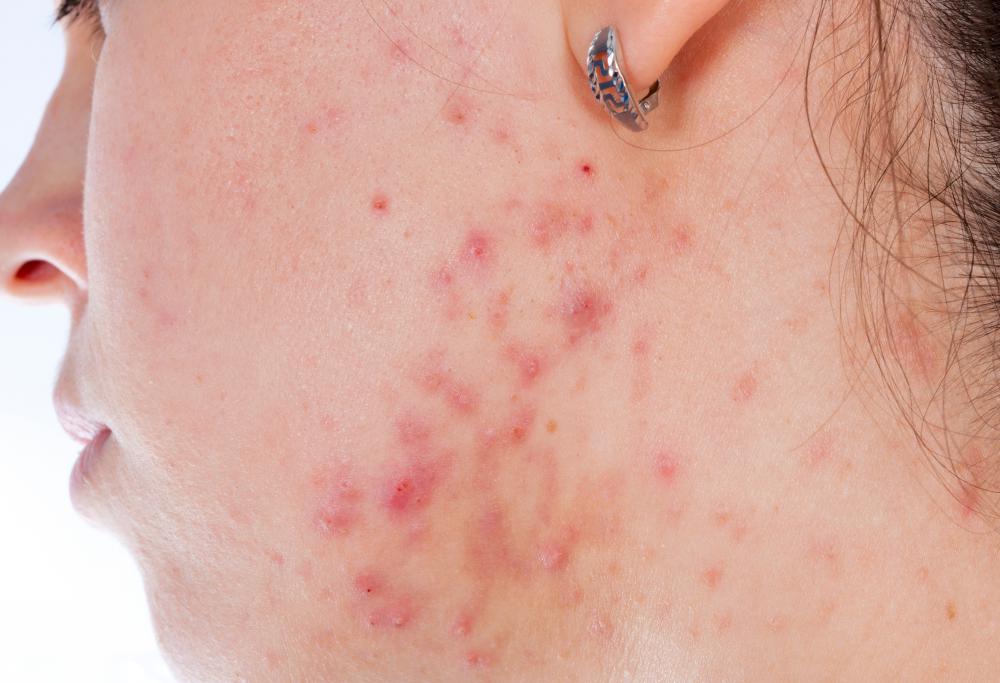At WiseGEEK, we're committed to delivering accurate, trustworthy information. Our expert-authored content is rigorously fact-checked and sourced from credible authorities. Discover how we uphold the highest standards in providing you with reliable knowledge.
What Is the Cause of Blackheads?
Blackheads are a form of acne caused when hair follicle openings become blocked or obstructed. The name “blackhead” refers to the appearance of the blemish, since a dark plug appears in the pore. With whiteheads, commonly referred to as pimples, the bump is closed and raised from the skin, and with the white part being the pus underneath the skin. While the cause of blackheads cannot be prevented, there are ways to minimize outbreaks.
Connected to hair follicles are oil-secreting sebaceous glands. This oil called “sebum” is used by the skin and hair as a lubricant which helps prevent dryness, but it is also a cause of blackheads. Too much sebum production can lead to plugged follicles thus causing open comedones, or blackheads. Oil-based skin and hair products such as lotions and hair gels can aggravate over-producing glands, leading to excess oils that clog pores.

A variety of factors can contribute to the increase in sebum production and clogged pores. Dead skin and dirt are leading contributors to the cause of blackheads. Other influences that cause blocked pores include insufficient cleaning, cosmetics, and other facial products. Environmental factors such as humidity and pollutants can also lead to break outs of blackheads.

The color of blackheads is caused from the debris that clogs the hair follicle opening. While sebum is the primary cause of blackheads, other matter such as dead skin cells that are not regularly removed can also create plugged pores, leading to the formation of bacteria. Hormones, certain types of medications, and dietary factors are all triggers that can aggravate or worsen existing cases of blackheads.

Acne can affect males and females of any age. Although it is most commonly associated with puberty, acne can also occur in later years of life. This condition is sometimes referred to as adult-onset acne. Diet, stress, and hormones are contributors to the increase of sebum production in adults. This increase in sebum can clog the small apertures in the skin causing blackheads.
Since the cause of blackheads is clogged hair follicle openings, the primary treatment is regular skin cleaning with a mild soap. A pore cleanser specifically designed to dry excess oils can also be used along with a cleaning routine. Cleaning the affected areas at least once a day is needed for mild cases, or twice a day during a breakout. For severe cases, topical and oral medications are available by prescription. Blackheads should not be squeezed, as this can lead to skin trauma such as scarring and infections.
Preventing acne outbreaks including blackheads begins with proper hygiene. Cleaning the face with a mild soap at least once daily will remove dead skin cells and excess oils. Opt for water-based cosmetics rather than oil-based, and clean away all cosmetics every evening before bedtime. Avoid tight-fitting clothes and apparel with straps which can create friction leading to skin irritation. Showering after exercising will remove excess oils and sweat that may lead to breakouts.
AS FEATURED ON:
AS FEATURED ON:













Discuss this Article
Post your comments